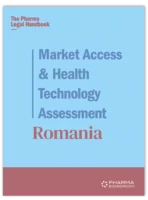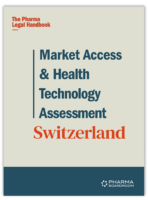Preclinical and Clinical Trial Requirements
/ Italy
Key legal info on preclinical and clinical trial requirements in Italy. Prepared in association with Baker Mckenzie, a leading law firm in Italy, this is an extract from The Pharma Legal Handbook: Italy, available to purchase here for GB 119.
1. Are clinical trials required to be conducted locally as a condition (stated or implicit) for marketing approval?
No. Under Legislative Decree No. 211/2003 on the application of good clinical practice in the conduct of clinical trials of medicines, clinical trials may be conducted in Italy and in other Member States of the EU. Moreover, according to Regulation (EU) No. 536/2014 on clinical trials on medicinal products for human use, also data generated in clinical trials carried out outside the EU can be used for registration purposed provided that they have been conducted in accordance with principles equivalent to those established in the same Regulation as regards the rights and safety of the subject and the reliability and robustness of the data generated.
2. How are clinical trials funded?
In Italy, clinical trials are classified into:
• “for profit clinical trials”, i.e. clinical trials conducted for registration and marketing purposes or, in any case, for the economic exploitation of the data generated in the trial. For profit clinical trials are sponsored by the pharmaceutical industry; and
• “non-profit clinical trials”, i.e. clinical trials funded by the NHS and conducted by public or non-profit entities which are not the MAH of the relevant investigational drug and do not share any economic interest, also by way of intellectual property rights, with the MAH. Although the pharmaceutical industry may economically support the conduct of non-profit clinical trials, also by providing free of charge products necessary to conduct the trial, the same trials must be carried out to improve clinical knowledge and practice rather than for registration and marketing purposes.
3. What are the requirements for preclinical and clinical trial protocols? Who must approve the protocols?
Trial protocols must describe the objective, design, methodology, statistical considerations, purpose and organization of the clinical trial. Protocols must comply with the requirements set forth in Paragraph D of Annex I to Regulation (EU) No. 536/2014 on clinical trials on medicinal products for human use. Under Italian law, trials protocols must receive the prior approval by the Ethics Committee of each clinical site involved in the trial. Less stringent rules apply to observational studies for which, depending of the specific characteristics of the relevant study, a mere notification of the study protocol to the competent Ethics Committee may be sufficient.
4. What are the requirements for consent by participants in clinical trials?
Pursuant to Legislative Decree No. 211/2003, a clinical trial can only be initiated if, amongst other things, the trial subject or, when the person is not able to give informed consent, his / her legal representative has given his written consent after being informed of the nature, significance, implications and risks of the clinical trial. If the individual is unable to write, oral consent in the presence of at least one witness may be given in exceptional cases.
In order to validly express his consent, the subject or his / her legal representative must be provided with specific information enabling the latter to understand:
• the nature, objectives, benefits, implications, risks and inconveniences of the clinical trial;
• the subject’s rights and guarantees regarding his or her protection, in particular his or her right to refuse to participate and the right to withdraw from the clinical trial at any time without any resulting detriment and without having to provide any justification;
• the conditions under which the clinical trial is to be conducted, including the expected duration of the subject’s participation in the clinical trial; and
• the possible treatment alternatives, including the follow-up measures if the participation of the subject in the clinical trial is discontinued.
The above information must be kept comprehensive, concise, clear, relevant, and understandable to a layperson and must be provided in a prior interview with a qualified member of the investigating team.
Legislative Decree No. 211/2003 and Regulation (EU) No. 536/2014 further provide specific rules on informed consent for cluster trials, emergency situations and trials on minors or incapacitated subjects.
The adequacy and completeness of the written information to be provided to the trial subject or his / her legal representative as well as the procedure aimed at obtaining his / her informed consent must be assessed by the competent Ethics Committee before the trial is approved.
5. May participants in clinical trials be compensated?
Regulation (EU) No. 536/2014 provides that no incentives or financial inducements can be given to the trial subjects or their legally designated representatives, except for compensation for expenses and loss of earnings directly related to the participation in the clinical trial. Such compensation can be given to minors and incapacitated subjects, including their legally designated representatives, and to pregnant or breastfeeding women. In this respect, the MoH has clarified that reimbursements of expenses directly incurred by the subjects for the participation in the clinical trial, such as board and lodging expenses, are not considered as incentives or financial inducements and that said expenses can also be reimbursed to accompanying persons in case of subjects who cannot move independently.
The MoH has also specified that requests for compensations, and related justifications, must in any case be assessed and approved by the competent Ethics Committee and that said compensations must not be used to indemnify subjects for the violation of their rights and safety nor to unduly influence their behaviours.
6. How are participants in clinical trials protected and indemnified against any harm that arises as a result of participation in the trial?
Art. 3 of Regulation EU No. 536/2014 lays down the general principle according to which a clinical trial may be conducted only if, amongst other things, the rights, safety, dignity and well-being of subjects are protected and prevail over all other interests.
In this respect, Regulation EU No. 536/2014 includes several provisions aimed at protecting the safety of trial subjects, such as those requiring the competent authority of the Member State responsible for authorizing the clinical trial to assess the relevant application also on the basis of the risks and inconveniences for the subject, taking account of the safety measures, including provisions for risk minimization measures, monitoring, safety reporting, and the safety plan proposed by the sponsor; those requesting the sponsor to promptly report to the “Eudravigilance” database all suspected unexpected serious adverse reactions occurred during the trial and to file an annual report on the safety of each investigational medicinal product used in the clinical trial; report those requiring the sponsor to adequately monitor the conduct of the trial to verify that the rights, safety and well-being of subjects are protected and to take all appropriate urgent safety measures to protect the subjects where an unexpected event is likely to seriously affect the benefit-risk balance.
At the Italian level, Legislative Decree No. 211/2003 provides that in case there are information casting doubts on the safety of the clinical trial, the MoH may suspend or prohibit the continuation of the same trial.
In terms of indemnification, Art. 76 of Regulation EU No. 536/2014 requires Member States to ensure that systems for compensation for any damage suffered by a subject resulting from participation in a clinical trial are in place in the form of insurance, a guarantee, or a similar arrangement that is equivalent as regards its purpose and which is appropriate to the nature and the extent of the risk. In Italy, Legislative Decree No. 211/2003 expressly provides that a clinical trial may only be commenced if, amongst other things, the sponsor has taken out an insurance policy covering the investigator and sponsor’s liability for any damage to subjects resulting from the participation in the clinical trial. The minimum requirements for said insurance policies are established in the Decree of the MoH dated July 14, 2009. According to the AIFA resolution dated 20 March 2008, observational studies on medicinal products are exempted form insurance policy obligations.



































































